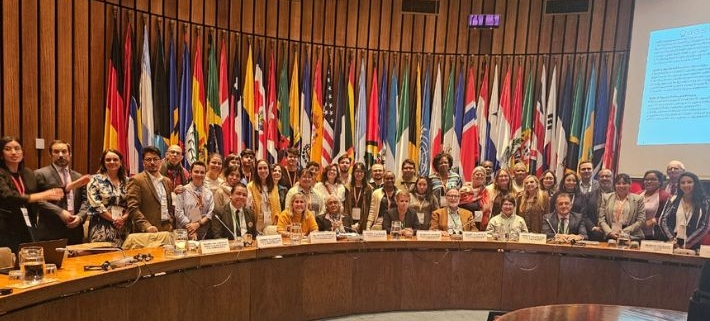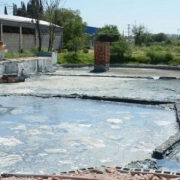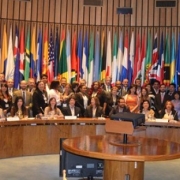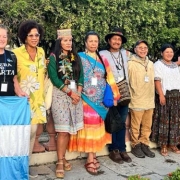We participate in the 3rd Conference of the Parties to the Escazú Agreement
From April 21 to 24, we participated in the Third Conference of the Parties to the Escazú Agreement (COP3) that took place in Santiago, Chile. Likewise, we were part of the event that was held previously (Pre-COP) and the parallel panels of civil society organizations.
“Below, we offer a google translate version of the original article in Spanish. This translation may not be accurate but serves as a general presentation of the article. For more accurate information, please switch to the Spanish version of the website. In addition, feel free to directly contact in English the person mentioned at the bottom of this article with regards to this topic”.
In April, the Third Conference of the Parties to the Escazú Agreement was held: a treaty on access to information, public participation and access to justice in environmental matters in Latin America and the Caribbean. The Conference of the Parties is the highest deliberative and decision-making body of this regional Agreement, and is held once every two years, with the purpose of making decisions, reviewing and promoting the application and effectiveness of the Agreement.
Particularly, the main objective of this third COP was the treatment and approval of the Action Plan on human rights defenders in environmental matters in Latin America and the Caribbean, the result of extensive prior public participation. This Plan aims to advance the implementation of Article 9 of the Agreement, which establishes the obligation of the Parties to guarantee a safe and conducive environment for the actions of defenders without threats, restrictions and in safe conditions. The Plan is structured into four axes, each with strategic actions:
- knowledge generation;
- recognition;
- strengthening of capacities and cooperation for the national implementation of the Action Plan;
- evaluation, monitoring and review.
It is important to highlight that the Escazú Agreement is the first international treaty that contemplates the protection of defenders. This incorporation is very relevant for Latin America and the Caribbean since it is considered the most dangerous region in the world for those who defend the environment. This is why advancing its protection and defense is a priority need for the region and an example for the rest of the world.
In addition, the mainstreaming of the gender issue was approved, through which measures, actions and activities will be incorporated aimed at integrating and reinforcing the gender perspective in relation to Escazú. Parties were also encouraged to continue promoting the full and effective participation of women in all their diversity, especially indigenous women. This is relevant since it forces countries to adopt measures to guarantee equity and equality.
Likewise, within the framework of the meeting, both in parallel and before and after, more than 30 events were held in which defenders, civil society organizations, indigenous communities, elected representatives of the public, and activists from across the region participated. and authorities. These events were very important for creating and strengthening ties, disseminating socio-environmental conflicts and building capacities among participants.
Although we cannot fail to notice the path that still needs to be taken to achieve environmental and climate justice, we recognize the enormous step forward that the approval of the Action Plan for defenders and the incorporation of the gender perspective implies. For these reasons, at Fundeps we continue to participate and firmly support the effective implementation of the Escazú Agreement, its dissemination and capacity building.
Authors
Manuela Fernández Grassani
Ananda María Lavayen
Contact
Laura Carrizo, lauracarrizo@fundeps.org







